We are working diligently on updating our lingo page! For now, we are sharing some common used phrases and terms in the Regency (its a work in progress, so please bear with us). We also have an excel based dictionary and thesaurus file available for download for the affordable price of $6.50 (US).
The terms below taken from several primary sources as well as other reputable dictionaries, so they are definitely not any of the infamous Heyerisms or when they are thought to be, we call it out. The pink words are linked to more in depth etymological or anecdotal posts. If you are looking for the difference between a carriage, barouche, and gig, I have a primer post on conveyances of the Regency here. If you want to know the difference between a macaroni, Pink, Bond Street Beaux, and more…go here. If you are just looking for the swear words, we have a post on that, too here.
Abbess: A bawd, mistress of a brothel.
Abigail: A lady’s maid.
Accounts, to cast up one’s: To vomit.
Ace of Spades: A widow.
Adventuress: Euphemism for prostitute or wild woman
Amen curler: A parish clerk.
Amiable: having or displaying a friendly and pleasant manner
Ankle, sprained her: gotten pregnant
Ape-leader: A pejorative term for an older single woman; a spinster or old maid. From an old proverb that women who die unmarried are fated to lead apes—considered at the time to be unproductive animals—in hell.
Apoplexy: unconsciousness or incapacity resulting from a cerebral hemorrhage or stroke
Bacon faced: full faced
Baggage: a prostitute, or woman who gives her affections freely.
Balls: shortened from ballocks, this was used in the 19th century
Bamboozle: To cheat or deceive.
Banns: a notice read out on three successive Sundays in a parish church, announcing an intended marriage and giving the opportunity for objections.
Barking irons: pistols
Beau: a man with presence, and often vain, good looking, and a notable fashion icon
Beau monde: fashionable world or fashionable people.
Bilk: to swindle or cheat.
Blade: dashing younger man of fashion, meant to imply youth and maybe a bit of immaturity or impetuousness
Blazes: Euphemism for hell or the devil
Bloody: Difficult to define etymology or definition, it was an extremely common oath as early as the 18th century and continued into the 19th century.
Blue-deviled: Affected with the blue devils; depressed, melancholy, low-spirited.
Bluestocking: an intellectual or literary woman. Originally a member of the 18th-century Blue Stockings Society from England led by the hostess and critic Elizabeth Montagu, the “Queen of the Blues”, including Elizabeth Vesey, Hester Chapone and the classicist Elizabeth Carter. In the following generation came Hester Lynch Piozzi, Hannah More and Frances Burney
Bob: a shilling
Bond Street Beau: a well dressed man who liked to shop in and around Bond Street, but in particularly liked to go on the stroll on Bond Street
Bone box: Head (Cant)
Bouncer: A barefaced lie
Buck: A popular, fashionable man who pursued pleasure, blood or sporting type
Bugger: Referring to anal intercourse, this was used nonliterally and similar to bloody, as an oath commonly uttered for a variety of occasions
Chemise: a shirt like under dress, usually falling above the knees
Chit: saucy or impertinent young girl
Chum ticket: A piece of paper given to a newcomer at a debtor’s prison, that holds the name of the person and the number of the room they are to share. Chumming altogether is complicated, see this resource.
Clap: VD, from 1700s on
Claptrap: absurd or nonsensical talk or ideas
Corinthian: athletes, sportsmen who excelled in most sporting activities of the day including fencing, boxing, hunting, shooting, driving and riding in addition to be always well dressed and mannered gentlemen
Costermonger: a person who sells goods, especially fruit and vegetables, from a handcart in the street.
Countenance: a person’s face or facial expression; support.
Courses: Menstrual period.
Cravat: a short, wide strip of fabric worn by men around the neck and tucked inside an open-necked shirt. These could be tied in a variety of styles:
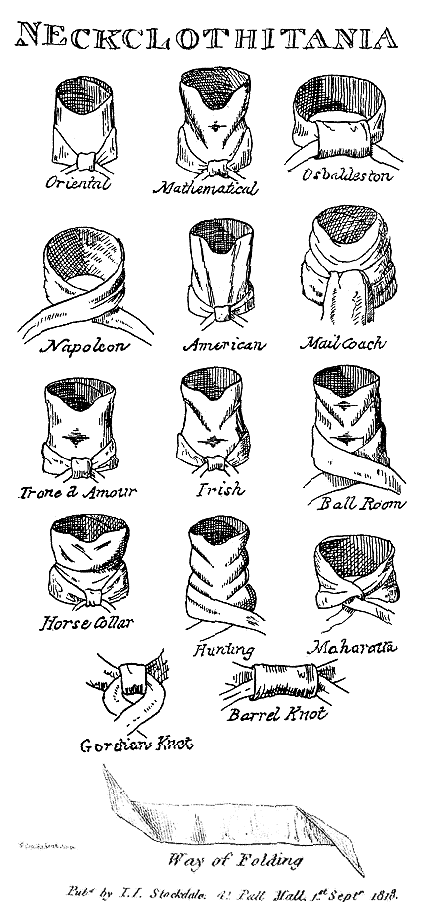
Cuckold: the husband of an adulteress, often regarded as an object of derision or, when used as a verb: (a man) make (another man) a cuckold by having a sexual relationship with his wife.
Cucumberish: To be broke or in debt.
Cut, The: To snub someone. There are four types of cuts, for more see here: Regency Customs: The Cut
Dandy: A man of fashion, charm and wit. The preferred subdued, carefully curated looks that reflected a “studied masculinity” with dark colors, no perfume, and artful accessories. This term came into prevalence in 1813.
Dicked in the nob: Silly; crazed.
Dowager: a widow with a title or property derived from her late husband.
Dudgeon: a feeling of offense or resentment; anger
Exquisite: a man excessively concerned about appearance, clothes, and grooming. Usually synonymous with dandy or coxcomb. Typically negative connotations, often satired, about a man being fussy or effeminate
Fadge: make suit, fit
Fortnight: A fortnight is a unit of time equal to 14 days (2 weeks).
Fudge: lies, nonsense
Fustian: a thick cotton and flax (linen) woven fabric. When used as slang, it means b.s. or laying it on thick. This may be a Heyerism.
Grand: one thousand pounds (GBP)
Groat: four pence
Hot flannel: Beer, gin, eggs, sugar and nutmeg mixed as warm drink.
Hunt the Squirrel: A woman flies while the man pursues her, but as soon as she turns, he runs away and she must follow. This was a considered a naughty game.
Hunting the Squirrel: A game usually played by post-boys and stage coachmen, whereby the coach would follow a one horse chaise and then pass it, brushing the wheels and frightening the people inside the chaise.
In Alt: A musical term, meaning in the first octave above the treble staff, also used to mean high or in transports.
Incomparable: a female of the ton without rival, match or peer. I haven’t been able to find direct usage (with the capital I) in original sources, suggesting this may be a Heyerism. The combination of incomparable female was used a lot in text, but mostly from the middle to late Victorian era.
Mawkish: Excessively and objectionably sentimental; sickening or insipid in taste
Merry Andrew: A buffoon, fool, or someone who clowns
Monkey: 500 pounds Sterling (Cant).
Nabob: a person who returned from India to Europe with a fortune.
Nonesuch or Nonpareil: the male exquivalent of the Incomparable. Excelling at most things, including sports, driving, and the cut of his jib, he was a man to be aped
Pink of the Ton (Pink of Fashion): Height of fashion or top of the mode. Usually referred to males.
Pony: 25 pounds Sterling (Cant)
River Tick: To have no money; be in debt
Sennight: A week
Shift: a white, linen precursor to the slip, or a sleeveless/short sleeve dress
Spencer: a woolen outer tail-coat with the tails omitted. It was originally named for George Spencer, 2nd Earl Spencer (1758–1834), who is reported to have had a tail-coat adapted after its tails were burned by coals from a fire.
Swell: Wealthy, elegant person; fashionably dressed or equipped; puffed-up, pompous behavior
Tanner: sixpence
Tiger: A smartly-liveried boy acting as groom or footman; formerly often provided with standing-room on a small platform behind the carriage, and a strap to hold on by; less strictly, an outdoor boy-servant. This term didn’t appear to be in popular usage until 1817.
Ton, the: High society, including the aristocracy and gentry, and sometimes well to do others or influencers. See also Upper Ten Thousand.
Town: London, when the T is capitalized.
Town bronze or town polish: acquiring the culture/manners of Town.
Tulip: a well dressed man, could be used pejoratively to describe a man of fashion.
Quiz : a riddle or enigma one who quizzes another; an odd fellow; to puzzle to banter or make sport of; to examine narrowly and with an air of mockery; to practise derisive joking
Under the hatches: broke or in debt (Cant).
Upper Orders: High society. See also Ton, the.
Upper Ten Thousand: Thought to be a Heyerism, meant to imply the Ton. The term was actually coined in the 1840s to describe wealthiest residents of New York.
Whipper snapper: A small fellow
Yest: A contraction of yesterday
Yoked: Married
Zany: A poor, stupid fellow.



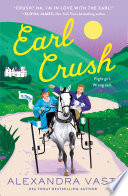
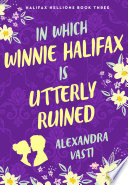
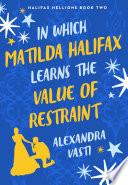
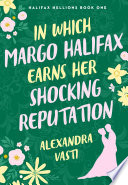

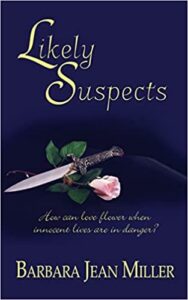
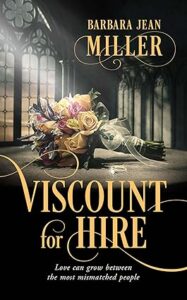



Pingback: What do you buy from a costermonger? Wondrous Words Wednesday | Joy's Book Blog
‘Bloody’ is a contraction of the oath ‘By Our Lady’
Thanks for your comment!
In researching the etymology of “bloody”, the theory that it is a contraction of the oath “By Our Lady” is suspect: https://www.etymonline.com/word/bloody and
Biscetti, S. (2008). The diachronic development of the intensifier bloody. English Historical Linguistics.
The Biscetti article does suggest a religious origin, most likely coupled with drunk as an intensifier, and demonstrating some relationship with the 17th and 18th century aristocratic “bloods” who were known for drunken debauchery. As our entry indicates, the true origins of the term are not yet completely understood, and still hotly debated, but I think modern linguistics point to it being a contraction of “By Our Lady” as unlikely.
Could it be coined from “By the blood of Christ”?
There are some scholars that suggest bloody is derived from “by the blood of Christ” but it is by no means conclusive and a high point of contention within etymological research.
What does it mean to refere to a man as a good leg?
What is the slang for a chaperone? Can’t remember. It is a short word.
Thanks for the question! We answer it here: https://regrom.com/2021/10/26/regency-reader-questions-chaperone-slang/
While looking through your slang dictionary, I saw the word TANNER, lang for the word sixpence. – which is perfectly correct.
Before decimalisation happened in UK, in 1971,the sixpence was still in circulation and was still called a tanner – Just thought you might find that little bit of info interesting.
Fascinating, thanks for sharing!
Was there a ‘thruppence’ in the Regency era – as in a three penny piece? Also tuppence a two penny piece, ha’penny for half a penny with a farthing?
I know they had florins, crowns, half crowns, shillings and guineas as part of the currency too.
There are online sources that claim thruppence was first used in the late 19th century, but I have found references in the Regency era, starting around 1813. It didn’t have greater use, according to Ngram via Google Books, until the mid 1800s. Tuppence had earlier, more common usage, as did ha’penny. I would caution using thruppence, but ha’penny and tuppence seemed ubiquitous in usage.
Pingback: Regency Reader Questions: Heyerism and Infamy – Regency Reader
I believe I have read the term blaggard or blackguard — meaning an very bad man–but cannot see to find it in any regency glossary I can find. Am I mistaken or thinking of something else? If I am do you know what word I need for the above meaning?
Hi Linda-
Our Cant Dictionary has blackguard listed as: shabby, mean fellow.
The definition appears in the 1793 Blackguardiana, among other cant dictionaries. There is a note that states: “term said to be derived from a number of dirty, tattered, and roguish boys, who attended at the horse guards and parade in St. James’ Park, to black the boots and shoes of the soldiers, or do any other dirty offices, there from their constant attendance about the time of guard mounting, were nicknamed the blackguards.”
Just re-read Heyer’s _Cotillion_ and twice it uses the idiom “eel-backed”–can’t find that anywhere, does anyone have a notion what is meant?
We answer this question in a post here: https://regrom.com/2023/06/20/regency-reader-questions-eel-backed/
Pingback: Regency Reader Questions: Smashing – Regency Reader
Pingback: Writing in the Regency Era – Online Resources – Author Jennifer Hudson Taylor
Pingback: Regency Words: Looking Yellow – Regency Reader
Fustian is mentioned as far back as the 1500s for bombastic or inflated language.
Fustian is used in Shakespeare to refer to something overly dramatic and/or fantastical and/or just false/fictional. I think this comes from the use of fustian fabric in the theatre.
Have you ever investigated the term “cawker ” – I believe I read it in Heyer though I don’t remember where. One of her many fun insults that young men toss at one another,
Could have any connotations related to telling a lie? That’s a cawker!